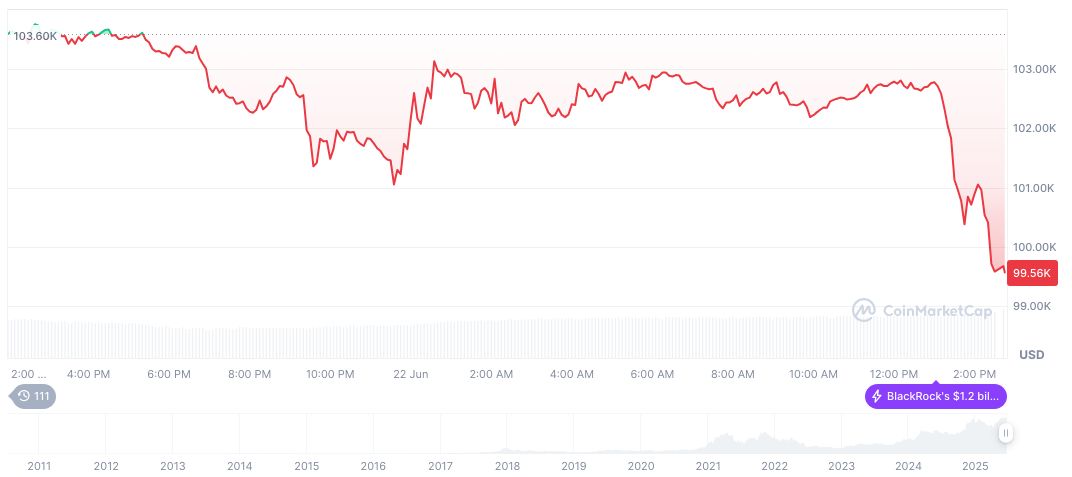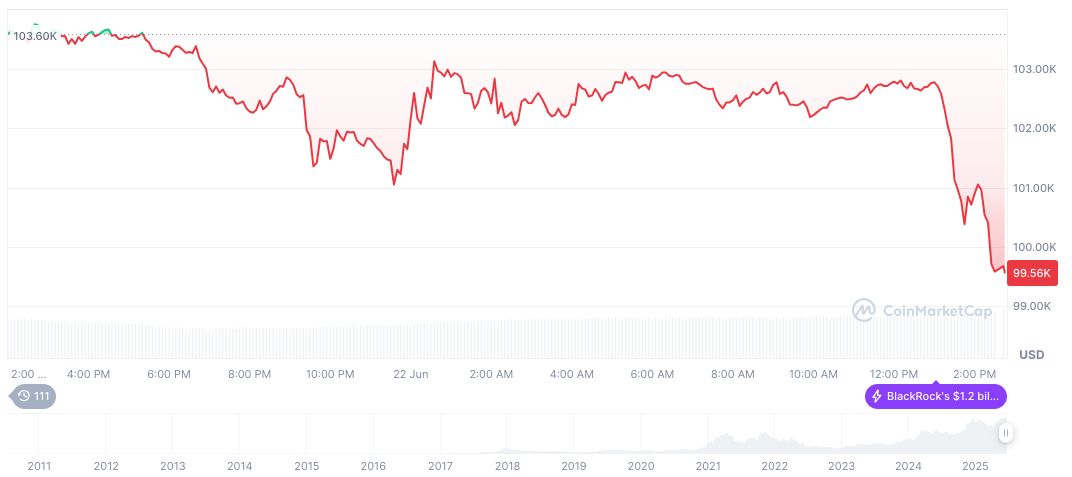- Federal Reserve maintains cautious inflation approach.
- US imposes 50% tariff on steel-made appliances.
- Economic observers watch for market volatility.
The Federal Reserve’s Chair Jerome Powell is delivering his semiannual monetary policy testimony before the House Financial Services Committee and Senate committee this week. The United States government concurrently implements a substantial 50% tariff on steel-made home appliances. This synchronized schedule impacts financial markets, with the Fed’s cautious approach amidst inflationary pressures being closely monitored. Powell’s testimony alongside new tariff measures is crucial for economic observers.
Federal Reserve Chair Jerome Powell’s testimony on the semiannual monetary policy report represents a crucial focal point. The Federal Reserve remained cautious in its rate policy, as highlighted by Powell:
Impact of US Steel Tariffs and Market Reactions
The US government’s decision to impose a 50% tariff on steel-made appliances adds complexity to the monetary landscape. This action could steepen inflation, complicating the Fed’s approach to monetary easing. Analysts emphasize that tariffs on steel increase unpredictability in pricing and production costs.
Market participants and economists are keenly observing anticipated reactions in financial markets, noting potential volatility. Powell remarked, “We expect inflation to arrive… Fed doesn’t think it can cut interest rates yet,” further illustrating the institution’s restrained posture.
“The economy is in a solid position. The unemployment rate remains low, and the labor market is at or near maximum employment. Inflation has come down a great deal but has been running somewhat above our 2 percent longer-run objective… We believe that the current stance of monetary policy leaves us well positioned to respond in a timely way to potential economic developments.”
Historical Context, Price Data, and Expert Analysis
Did you know? In past tariff implementations, particularly in 2018 and 2019, cryptocurrency markets saw a spike in volatility, with assets like Bitcoin experiencing asset whipsaws. Such economic maneuvers typically introduce short-term instability across risk-sensitive sectors.
Bitcoin (BTC) is currently valued at $99,258.26, with a market capitalization of $1.97 trillion. It commands a market dominance of 64.79% even as its price reflected a 4.30% drop within 24 hours, according to CoinMarketCap. The crypto giant showed a composite drop over 30 and 90 days but maintained a moderate gain over the past 60-day cycle.
The Coincu research team identifies potential consequences from the intersection of tariffs and Federal Reserve commentary. They suggest that macroeconomic shifts due to tariffs and pending inflation may influence digital asset volatility and investor strategy. Historically, these conditions warrant careful market observation to navigate possible regulatory and financial adjustments by stakeholders.
| DISCLAIMER: The information on this website is provided as general market commentary and does not constitute investment advice. We encourage you to do your own research before investing. |
Source: https://coincu.com/344621-fed-testimony-us-tariffs-impact/

